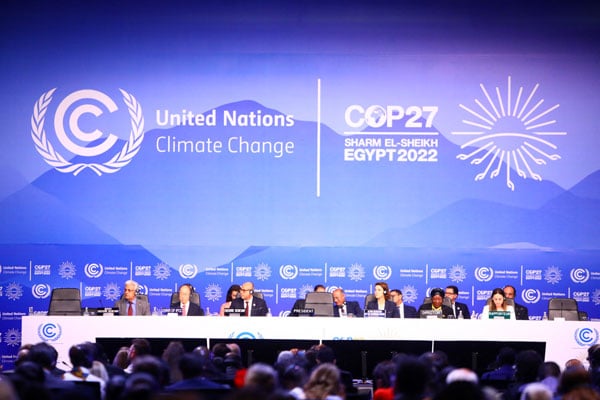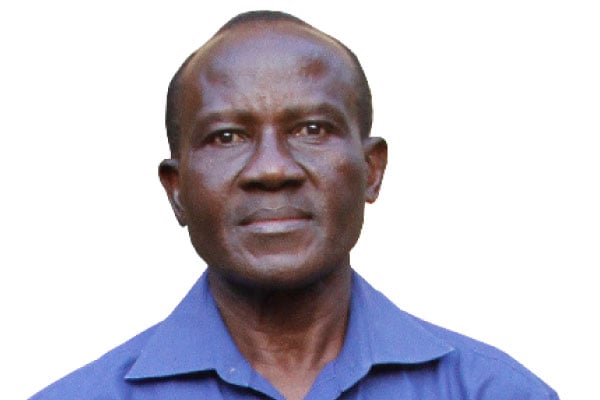Cop27: Let us not put all eggs in one basket

Delegates attend the opening ceremony of the 2022 United Nations Climate Change Conference, more commonly known as COP27, at the Sharm El Sheikh International Convention Centre, in Egypt's Red Sea resort of the same name.PHOTO / AFP
What you need to know:
The issue: Cop27
Our view: We reckon one of the most plausible ways of effecting a phase-down is by adding different clean energy sources into the energy mix.
The final outcome of the Cop27 climate summit in the Egyptian resort of Sharm el-Sheikh seen with a global south eye delivered something of a marginal win.
The agreement to set up a loss and damage fund—while not an indication of a level of moral culpability from nations that became wealthy on the back of coughing up greenhouse gases—is a milestone for developing countries. Most—if not all—poor countries have been hard at it for several decades, trying to get what are reparations by any other name.
The pledge needs close and, dare we say, sceptical examination not least because the identity of countries that will shoulder the financial burden rests on a cornerstone of conjecture. The back and forth over whether nations like China should also pick the tab will play out in future Cops. How many is any one’s guess. What is abundantly clear is that loss and damage has become the latest pillar to climate action, joining mitigation and adaptation.
In the recent past, there has been no great secret to, or difficulty in, working out Uganda’s prioritisation of adaptation over mitigation. Initiatives such as the Local Climate Adaptive Living (LoCAL)—launched in four districts in May—have made clear the gargantuan appetite to integrate climate change adaptation into the development plans and budgets of local governments.
Energy wonks have severally indicated that a shift to a net-zero or low-carbon economy—the very embodiment of mitigation powered by renewable energy—doesn’t quite cut it with Uganda. The fact that a net-zero transition doesn’t come on the cheap compounds matters. The wonks are consequently adamant that what Uganda needs is to build capacity in technical transfer, weather forecasting to mention but two adaptations.
We continue to share the concerns of experts who insist that this ought not to be an either [adaption]/or [mitigation] situation. The two as well as loss and damage are inextricably interwoven so much so that they must work in tandem.
If it needs to be spelt out, Uganda remains highly vulnerable to the impacts of climate change. To be specific, she is the 10th most vulnerable country to climate change’s sledgehammer blows as per Notre Dame Global Adaptation Initiative’s 2021 index. The same index shows that the country ranks 35th amongst those with least readying terms of preparedness to smart from climate change blows.
All of these means that Uganda has to be really careful about what undergirds her approach to climate action. While we understand what informs President Museveni’s bitterness at the duplicity of recommendations on energy poverty in the global north and global south, tit for tat clearly won’t cut it. The ‘an eye for an eye and a tooth for a tooth’ old law—as Martin Luther King Jr. once warned—will leave us all blind and toothless.
Uganda should instead push for initiatives that will see her shift away from polluting fossil fuels. We reckon one of the most plausible ways of effecting a phase-down is by adding different clean energy sources into the energy mix. We should not entirely hedge our bets on the waxy crude oil extracted out of the Albertine Graben.
Our commitment to you
We pledge:
- To be accurate and fair in all we do.
- To be respectful to all in our pursuit of the truth.
- To refuse to accept any compensation beyond that provided by Monitor Publications Ltd. for what we do in our news gathering and decision-making.
Further, we ask that we be informed whenever you feel that we have fallen short in our attempt to keep these commitments.



